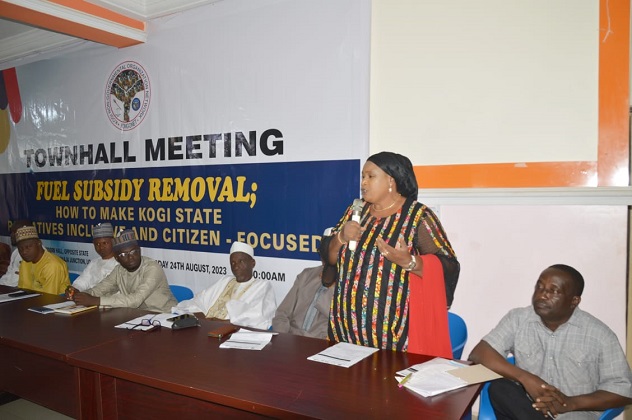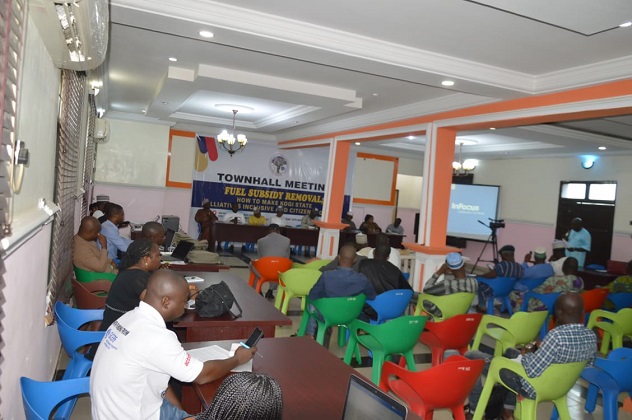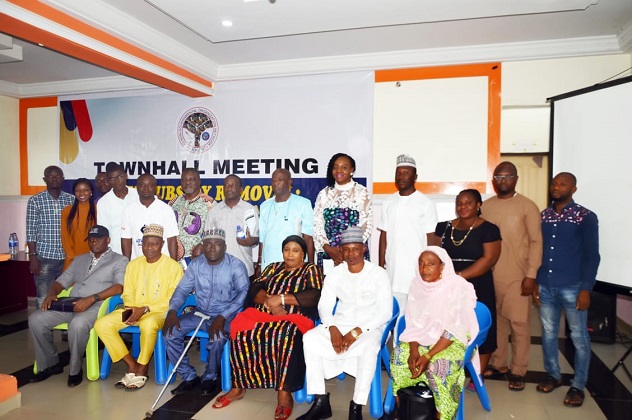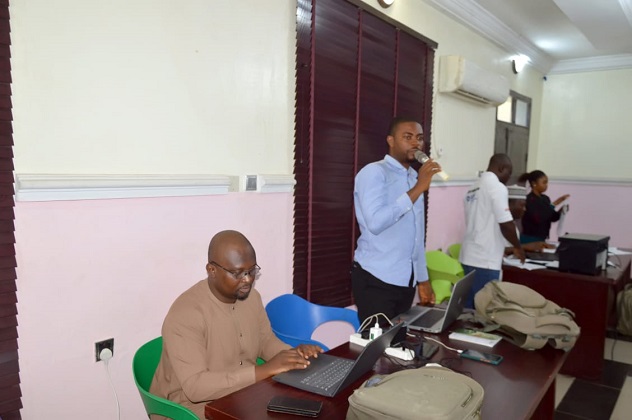In the face of harsh economic realities occasioned by the removal of subsidy on premium motor spirit (PMS), Kogi NGOs Network (KONGONET) has called on the state government to set up all-inclusive committee, made up of representatives from all stakeholders in the state, to fashion a road map for implementation of a holistic palliative administration.
Speaking at a stakeholders townhall meeting on effects of fuel subsidy removal on Kogi citizens in Lokoja on Thursday, Chairperson of KONGONET, Amb. Idris Ozovehe Muraina, harped on the importance of ensuring inclusive and citizens-focused palliative measures in the state.
Amb. Muraina urged the state government to ensure provision of targeted assistance to the poor and vulnerable in the society.
“The issue of fuel subsidy removal has been a subject of intense debate in recent times. The government has argued that the subsidy is no longer sustainable and that it is a drain on the nation’s resources. However, there are concerns that the removal of the subsidy will have a negative impact on the poor and vulnerable across the length and breadth of the country, that we are already witness here in the state.
“The decision of whether or not to remove fuel subsidies is a complex one. There are valid arguments on both sides of the issue. Ultimately, the decision must be made by the government, taking into account the specific circumstances of the country.
“If the government does decide to remove fuel subsidies, it is important to do so in a way that minimizes the negative impact on the poor and vulnerable. This could be done by providing targeted assistance to the poor and vulnerable, such as cash transfers or food subsidies. It is also important to ensure that the removal of the subsidy is accompanied by other measures to promote economic growth and job creation,” he said.
Stakeholders at the town hall meeting decried the absence of a formal engagement platform on the state palliative administration. They described the situation as disturbing and an indication of the communication challenge between citizens and the State Government.
They called the State Ministry of Information and Communication to set up modalities for periodic information sharing on government activities immediately.


In his presentation, the Executive Director of Conscience for Human Rights and Conflict Resolution (CHRCR), Comrade Idris Miliki Abdul, called on Kogi state government to increase minimum wage and implement a comprehensive social protection programme for the poor and vulnerable.
“It is well recognised that the security and welfare of the people shall be the primary purpose of government. But for a variety of reasons, governments serve purposes that are inimical to citizens and society.
“The challenges in Nigeria is huge. Nigeria hosts the largest number of poor people in the world. The fuel subsidy removed by President Bola Ahmed Tinubu on 29th May 2023 has increased suffering and misery. But there are clear policy prescriptions that can alleviate the suffering of the poor and vulnerable through social protection and palliatives.
“The Kogi State Government should adopt a comprehensive agenda for the State, adopt a procedure for filtering policy ideas and consider setting up a State think tank, increase the minimum wage, continue with the social investment programme but ensure transparency and accountability and partner with development partners and reputable civil society organizations (CSOs) in the state that are working on social protection,” Miliki said.
Executive Director, Initiative for Grassroots Advancement in Nigeria (INGRA), Hamza Aliyu expressed concerns that Kogi state government is yet to tell citizens its plans to cushion the effects of subsidy removal like other states of the federation.
Stakeholders at the town hall meeting included Members of the Kogi State House of Assembly, Network Against Child Trafficking Abuse and Labour (NACTAL), Ministry of Finance, Budget and Economic Planning, traditional rulers, Kogi State Shippers Association, Christian Association of Nigeria (CAN), Jammaatul Nasril Islam (JNI), Nigeria Union of Pensioners, Kogi Chambers of Commerce Industry Mines Agriculture (KOCCIMA), International Federation of Women Lawyer (FIDA), Nigerian Union of Journalists (NUJ), Joint National Association of Persons with Disability (JONAPWD), Nigerian Labour Congress (NLC), Conscience for Human Rights and Conflict Resolution (CHRCR), National Council of Women Society (NCWS), Small-scale Women Farmers Organization in Nigeria (SWOFON) among several others.
The stakeholders jointly agreed that despite the challenges and the attendant disruptions that the fuel subsidy has caused, they were in support of the removal.
However, they called on Kogi state government to provide grants to vulnerable citizens, especially women),to alleviate their suffering at the community level. They added that the state government should provide palliatives for small scale business to cushion the effects of the removal of fuel subsidy.
The stakeholders noted that a key strategy for palliative administration should involve the development of rural infrastructures, especially roads, housing and Primary Health Care (PHC).
They called for increase in salary and other welfare packages for workers and pensioners which should be done with consideration on the attendant effect it has on the economy.
They called on State and Local governments to, as a matter of urgency, put in place a viable and accessible mass transportation system that includes marine, road, and rail options/alternatives, while partnering with the private sector.
Stakeholders called on Kogi state government to check the incessant increase in the cost of food in the state through a functional Market Board, and consider resuscitating the Kogi State Consumers Shops.






